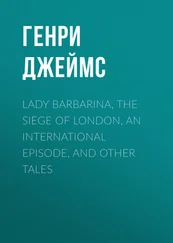It is the way of people who have grown up in a beautiful place to take its charms for granted. But when they visit another lovely town, they not only note the new charms, but first become aware of the beauty they have always lived with. So for Rechnitz, the arrival of Shoshanah in Jaffa served also to reveal the beauty of the girls with whom he was already familiar.
We have spoken of Leah Luria and Rachel Heil-perin. Friends as they were, Rachel was the more sharp-witted and Leah the more sympathetic. Leah was older than any of her friends and yet her eyes shone with youth and good nature, as if they were the dwelling place of angels. If her talk was not too solid, still it gladdened the heart. When they were out on an excursion and sat down to rest, it was Leah who would arrange a meal for the whole group, seeing that everyone got his share and forgetting to look after her own needs in her concern for the welfare of others. As for Rachel, she was not to be measured by any standards of good or evil. If she did something wrong, you could not be angry with her; if she did a good deed, she did not think well of herself for it. She was also the kind of person you could speak to without any pretense. Yet this merit was also a defect, for nothing you did could help you, since all depended on her and nothing on you yourself.
And now let us consider Asnat Magargot. She came from Kirov, and it was said that her father had gone bankrupt and absconded to the Land of Israel, much as most persons in that condition abscond to America. Bankruptcy and embezzlement are great transgressions, which cannot be atoned for until the ill-gotten gains are restored to their rightful owners, and even then it is doubtful if one is completely absolved. Magargot, however, was not very guilt-stricken; rather, he behaved as if he had done a great favor to the Land of Israel, proving by his action that the Settlement was a practical proposition, and that sudden departures from Europe need not have America for their destination.
Asnat, like Leah Luria and Rachel Heilperin, was a tall girl. She wore a greenish brown dress of fine smooth weave, with a silver belt whose roped ends fell below her knees. Though her dress was like the habit of a monk, Asnat’s lips were eager — but not for kisses. You might be sitting beside her for two or three hours, my dear friend, almost crazy with the desire to take her in your arms; and she too might share something of the same idea. But that was all. You would merely pick up the two tassels that fell from her belt and go on talking about Ibsen’s plays or something of the sort. The world has its set ways, and if it occurred to you to deviate from them, you would find this impossible with Asnat. Her steel-blue eyes cut your soul into little pieces. This was the more surprising because the kind of topics Asnat discussed — all those “problems of modern life” — were just the kind that create the greatest intimacy; and yet you could not so much as touch her with your little finger. What then did Asnat really want? She wanted much, and she wanted nothing; she wanted nothing, and she wanted much. On a summer night she would take a fancy to walking as far as Rishon LeZion and ask you to escort her. And you would walk along with her by the sand dunes for three hours in the darkness, going by night and coming back by night, without her letting you touch even the tassels of her belt, either on the way out or on the way back.
Raya Zablodovsky was a relative of Asnat, though you could hardly find two girls so unlike, either in stature or feature. Asnat was tall and her face bore witness to a quick wit; Raya was no taller than a child and her face testified neither to a quick wit, nor even to a slow-paced one. She had sandy hair and her lips pouted as if she had just tasted an unripe fruit. In disposition she was withdrawn, like a bird that covers its head with its wings. Some of her friends declared her too egotistical, others even thought her malicious. Yet they could not help being drawn to her, since both qualities, that is to say both the self-love and the malice, were cloaked in a humor that never failed to surprise. Thus, she might decide to seat herself on a boulder after spreading some fine silk scarf over it; if you remarked that this was strange behavior, she would say, “Not at all. It isn’t my scarf, you see.” Never in her life had Raya read a book cover to cover, neither in Russian nor in Hebrew, not even the books that everyone was talking about. She failed her examinations twice and left school before finishing, without any regrets. “In the end,” she would say, “you forget everything you have learned. As for me, I forget without bothering to learn it first.” How, then, did she come to be one of the girls in Rechnitz’s group? Simply because this is life’s way: once you belong to a certain group, you belong, however different you are.
Raya’s neighbor was Mira Vorbzhitsky, the daughter of Niuma Vorbzhitsky, who had been a guard of the Sharon settlements. He was the terror of bandits, and if he found any within his beat he was capable of picking a man up and using him as a flail against his companions like someone beating a garment with a stick. Mira had more agility than any girl in Jaffa, not excepting even Rachel Heilperin, for when she was little her father used to make her ride an unsaddled horse which he would set galloping over the hills, paying no heed to her frightened cries. She was still accustomed to riding bareback, and on occasion she would take a horse from between the shafts of a carriage and mount it and ride as far as Sarona. Although she had the graceful figure of a girl, she resembled a handsome youth. When she was a child and her father was still a guard, they had lived on the outskirts of the village away from other settlers, where her mother used to dress her in boys’ clothes as a precaution against the Arabs. Her bearing still had something boyish about it, though her manners were those of a girl, and she was dear to her companions of both sexes.
Something has yet to be said about Tamara Levi. Her father had been a doctor. Once in the rainy season, on a dark overcast night, he was out riding on his donkey to visit a patient in the settlements. The donkey stumbled into a flooded wadi, and the doctor drowned. Tamara lived with her mother in a single room in a large courtyard of many apartments. The mother was a rabbi’s daughter and well aware of her standing, but she found it difficult to earn a livelihood. She would care for the sick, sometimes sitting with them all night. Her husband had left her nothing when he died; and now she had to make a living for herself and Tamara and to see that her daughter had the same education as other girls of good family. Mother and daughter loved each other much, but this involved them in serious conflict. For it happened that a certain school Secretary, with quite a good income, was courting Tamara and her mother approved of the match. As for Tamara herself, she said that she had no objection to marriage but that she did not see why it should be with this man in particular, even though he did have a good position at the school where Rechnitz taught.
Tamara’s hair, one supposes, was ash-grey; her eyes, it may be assumed, were blue; but the blue-tinted radiance that lit up her features and dazzled the eyes made these two colors seem interchangeable. At first sight she might have escaped your notice. Later, if not for the narcissus or carnation pinned on her breast, you might miss the presence of a heart underneath. Her real name was Tamar but she liked to be called Tamara, and since she was such a dear child, let us call her by the name she preferred. Her conversation was not notably wise; if one cared to say so, it even tended to silliness; but her lips caressed your heart much as the red flower on her own heart was caressed by the tip of her nose. One time Rechnitz had set his lips to hers; they had quivered slightly and just touched his in return. A touch that was hardly a touch at all. Heavens above, if that was the shadow of a kiss, what would a true kiss be like? No girl in the world had such lips as hers, and, besides this, every touch of her hand was like a kiss. But was there any man in Jaffa who knew it?
Читать дальше












